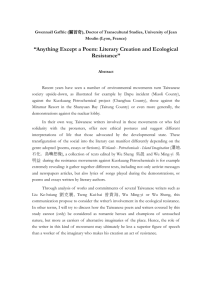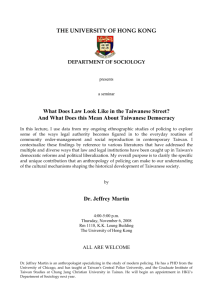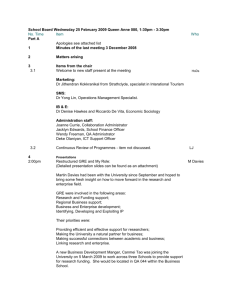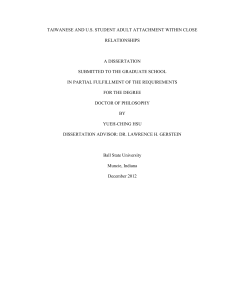ABSTRACT DISSERTATION: STUDENT:
advertisement
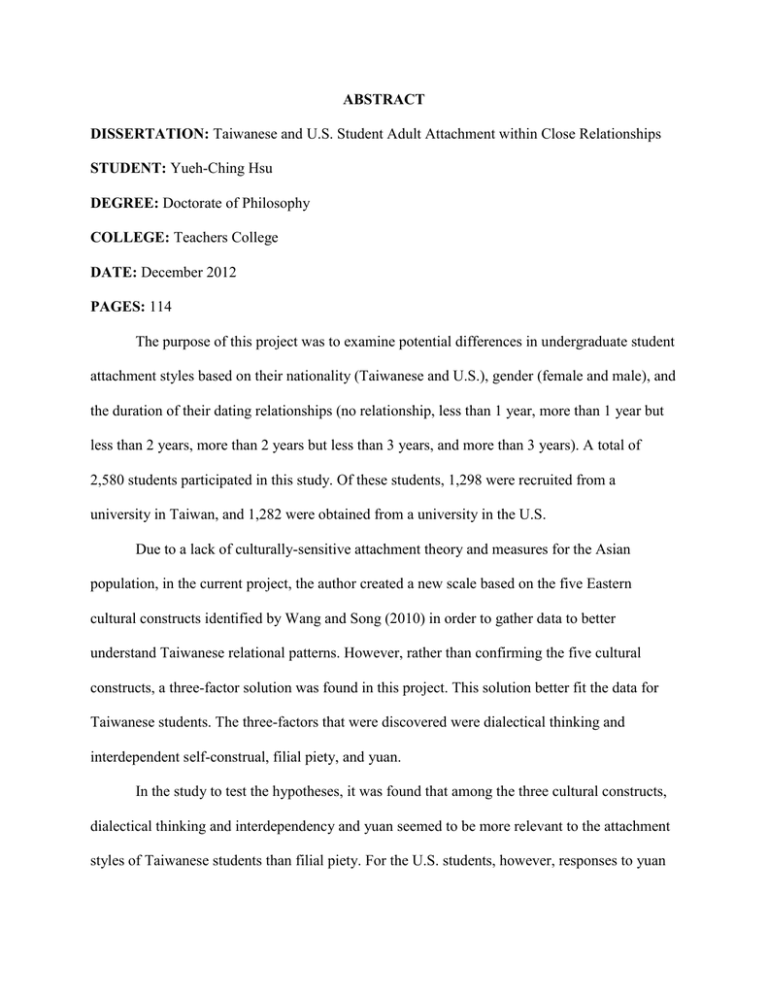
ABSTRACT DISSERTATION: Taiwanese and U.S. Student Adult Attachment within Close Relationships STUDENT: Yueh-Ching Hsu DEGREE: Doctorate of Philosophy COLLEGE: Teachers College DATE: December 2012 PAGES: 114 The purpose of this project was to examine potential differences in undergraduate student attachment styles based on their nationality (Taiwanese and U.S.), gender (female and male), and the duration of their dating relationships (no relationship, less than 1 year, more than 1 year but less than 2 years, more than 2 years but less than 3 years, and more than 3 years). A total of 2,580 students participated in this study. Of these students, 1,298 were recruited from a university in Taiwan, and 1,282 were obtained from a university in the U.S. Due to a lack of culturally-sensitive attachment theory and measures for the Asian population, in the current project, the author created a new scale based on the five Eastern cultural constructs identified by Wang and Song (2010) in order to gather data to better understand Taiwanese relational patterns. However, rather than confirming the five cultural constructs, a three-factor solution was found in this project. This solution better fit the data for Taiwanese students. The three-factors that were discovered were dialectical thinking and interdependent self-construal, filial piety, and yuan. In the study to test the hypotheses, it was found that among the three cultural constructs, dialectical thinking and interdependency and yuan seemed to be more relevant to the attachment styles of Taiwanese students than filial piety. For the U.S. students, however, responses to yuan were significantly correlated with responses to attachment styles. Regarding the comparison between Taiwanese and U.S. participants, Taiwanese respondents seemed to relate to a dialectical thinking pattern, interdependency, and yuan better than U.S. students, while U.S. respondents rated higher on filial piety than the Taiwanese participants. In addition, the longer individuals were involved in a dating relationship, the lower they scored on attachment avoidance. Even though females' overall scores on avoidance were higher than males, being in a relationship had greater salience for females than males. Strengths, limitations, and implications for research, theory, and practice are discussed. Keywords: attachment, cross-cultural attachment theory, Taiwanese attachment, dialectical thinking, interdependent self-construal, filial piety, and yuan

